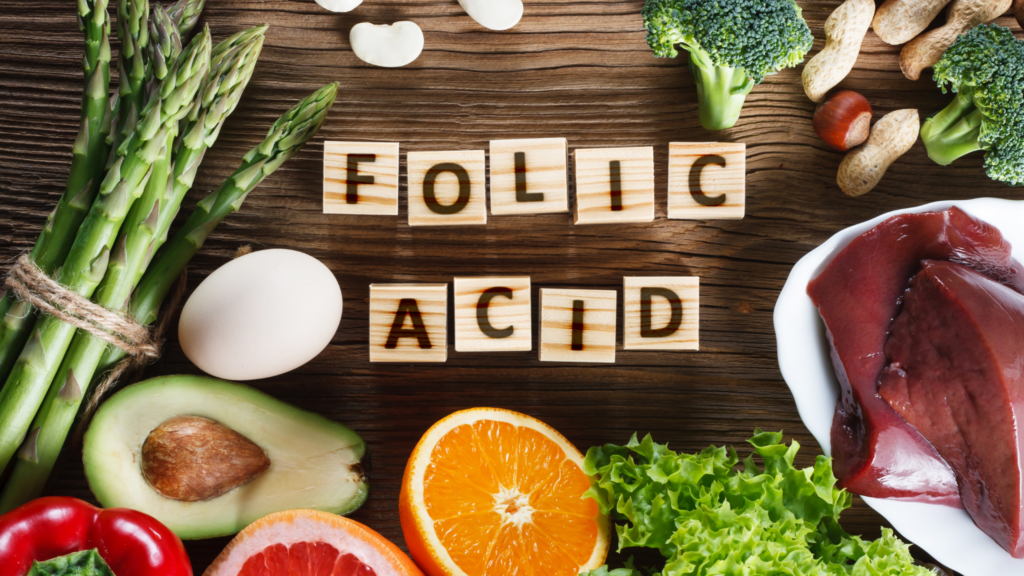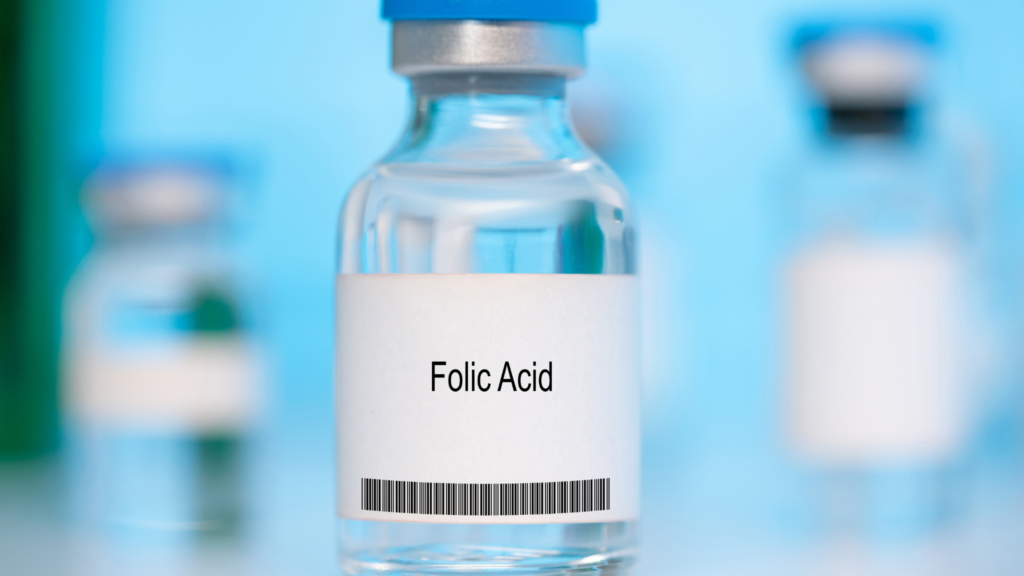
Folate is a type of B vitamin (vitamin B-9), and it’s crucial for the formulation of red blood cells and healthy growth and function. This nutrient is necessary for early pregnancy to lower the risk of birth defects to the baby’s spine and brain.
Overall, folate is found primarily in nuts, peas, beans, and leafy/dark green vegetables. However, some fruits are rich in folate, such as lemons, oranges, strawberries, melons, and bananas.
In synthetic form, you have folic acid, which is a crucial component in prenatal vitamins and comes in foods fortified with folic acid, including pasta and cereals.
If your diet lacks folate-rich foods or folic acid, you might develop a folate deficiency. This can also happen for those with certain conditions, including celiac disease. With it, the small intestine cannot absorb the nutrients in foods.
Most people should get about 400 micrograms of folate each day. However, adult women who plan to get pregnant or might get pregnant require up to 1,000 mcg of folic acid daily.
The question on everyone’s mind is whether folic acid is good for the heart or not. Studies indicate that it might lower your high blood pressure and have other heart-healthy benefits. Let’s learn more.

Research on using folic acid supplements for specific conditions is significant and shows these things:
Studies on folic acid started in the 1970s and included the Health Professionals Follow-Up and the Nurses’ Health Study. These show that those who consume more folate have had fewer heart attacks and strokes than those who consumed less.
Folate and other B vitamins will break down homocysteine, which is an amino acid that could damage your arteries’ inner walls.
According to the NCBI, there have been a total of 12 different randomized controlled trials involving 47,523 participants who met the inclusion criteria for the systematic review it provided. You can read about each randomized controlled trial here.
Most people should be getting folate from their food. Generally, a balanced diet is all that’s required. However, folic acid therapy and supplementation are often recommended for women who might get pregnant, plan to get pregnant, are breast-feeding, or are pregnant.
Likewise, folic acid supplements might help those with conditions or poor diets that prevent the body from absorbing folate. This often happens to myocardial infarction survivors and those with coronary heart disease or vascular disease.
Folic acid fortification is generally safe if you use it at the appropriate dose. However, oral use might cause:
Those with allergies might have a reaction, and the symptoms include:
Any excess folic acid will be excreted through your urine.
Taking too much folate might mask your vitamin B-12 deficiency until the neurological effects are irreversible. Therefore, you might require a supplement for vitamin B-12 and folic acid.
The folic acid benefits for women include:
Whether you’re at a higher cardiovascular risk or not, there are also folic acid benefits for men, including:
The possible interactions can include:

Even one risk factor for heart disease, such as high blood pressure, can lead to significant problems as you age. You’re looking to find options to help you prevent cardiovascular diseases, and folic acid might be an excellent choice.
Vitamin supplementation is crucial, but folate is only one piece of the puzzle. There’s no magical solution. Is folic acid good for your heart? Definitely! However, you must focus on your overall eating habits and choose healthy foods that aren’t processed or full of fat. Citrus fruits, dark leafy vegetables, and fortified breakfast cereal are only a handful of options.
Your lifestyle also plays a role. Exercise is crucial, and you should be moving and standing more often than sitting. In many cases, these things will help you manage your health problems, such as type 2 diabetes, high cholesterol, and blood pressure issues.
Copyright © CardiacKrock.com. 2022 All rights reserved. | Sitemap